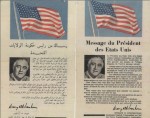As the Winter Olympics returned to the headlines these past few weeks and we were filled with memories of four years ago in Vancouver, I decided this time around to root for the bronze medal winners.
I cheered for the bronze because, in my opinion, the most exiting Olympic competition is not the race for the gold, but the battle for the bronze. While it is exciting to see who will win (I did root for gold medal winners, too), I was particularly drawn to cheer for the ones who didn’t lose.
In 1995, a study was carried out by social psychologists Victoria Medvec, Scott Madey and Thomas Gilovich on the psychology of Olympic medal winners. The study showed that athletes who won the bronze medal were significantly happier with their results than those athletes who won the silver. Those who placed second were more frustrated because they had missed the gold medal, while the bronze medalists were simply happy to have received any honors at all (instead of a fourth-place finish). This is even more pronounced in knockout competitions, such as soccer’s World Cup, or the NCAA Final Four competition, where the bronze medals are achieved by winning a playoff; silver medals are awarded after a defeat in the final.
The truth is that the competitions would seem incomplete without a third-place finisher. Imagine if they only gave out a gold medal. It would be all about one person, too egocentric and too exclusive. For that matter, two is really not much better. The silver medalist is merely the guy who didn’t win. Without a bronze, he or she can’t even say, “Well, at least I didn’t come in third.” Number three, on the other hand, has a sense of fullness, of completion. Like the old saying, “three’s a crowd,” everyone is represented. Or, better put like the TV show, “three’s company.”
We know this in our own colloquialisms, as well. Three is the predominant way we categorize the world around us. What do we call the alphabet? The ABCs. What do you tell your kids when they are trying something and can’t get it right? Third time’s the charm (unless it takes more than that, of course). What does the starter say for a race? On your mark, get set, go! You tell a joke, it has to be: a priest, a minister and a rabbi – leave one out and you risk offending by not being inclusive in your offending humor. Nobody stands up at a wedding and shouts two cheers for the bride and groom. At Starbucks, it’s tall, grande and vente. Even made-up terms have a hierarchy. And, in those cases where the expanse of society has necessitated a fourth category – as in small, medium, large and extra large – it has the clear connotation of existing outside the norm, beyond the scope of what is necessary. It just doesn’t fit – pun intended.
Our rabbis knew this, as well. In the Mishnah, Rabbi Shimon the Righteous proclaims, “Al shlosha d’varim ha’olam omed: al haTorah, v’al haAvodah, v’al gemilut chasadim”: “The world stands on three legs: Torah, prayer and deeds of loving kindness.” Leave out any one of these and the world collapses in disarray. The Vahavtah of the Shema gives the same message: love God with all your heart, soul and might – miss one of these and you have not loved God completely. More positively: do all three of these and you can feel a closeness to God that would otherwise escape you.
Three is a very Jewish number. Three patriarchs: Abraham, Isaac and Jacob. It was three days into the journey from Egypt when the Israelites encountered God in the desert. Traditional Jews pray morning, noon and night. Hebrew verbs have three-letter roots, which serve as the foundation for the whole lexicon of Jewish expression. The list goes on.
One of the most powerful instances of three in Jewish tradition is the custom of placing three shovels of earth on a grave at a funeral. I am frequently asked, “Rabbi, why three shovels of earth?” We place three shovels of earth for the same reasons mentioned above. Three is complete; it shows intention and a fullness of action. One could be inadvertent, two is somehow just not enough, but three means that you have fulfilled the mitzvah.
One of my favorite teachings from Jewish tradition is about the mezuzah and why it rests on an angle on the doorpost. Rashi said it should lie flat, while his grandson, Rabbeinu Tam, said it should be vertical. In a rare moment of compromise between these two schools of thought, a student of them both, Rabbi Jacob ben Asher, ordained a third way, a compromise position. It rests on an angle because, among the many given reasons, the key to a peaceful home, to shalom bayit, is compromise, finding a third way.
Bronze medalists give meaning to the achievements of the others, they place everything in perspective. They are not to be forgotten as last of the best, or even remembered as first of the worst. Rather, they are the essential pillar of the competition, the bridge between just making it and not making it at all.
We live most of the moments of our lives on that bridge – balanced precariously between success and failure. Celebrate the bronze medals in the many moments of your life: they are hard fought and hard won.
Rabbi Dan Moskovitz is the senior rabbi of Temple Sholom. Follow him on Twitter, @rabbidanmosk.

